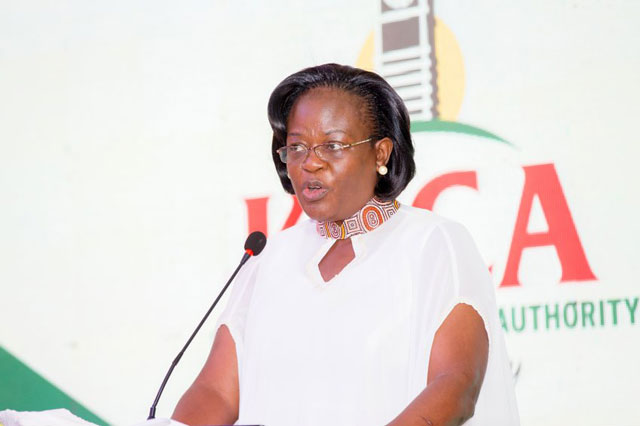
Kampala, Uganda | THE INDEPENDENT | What do you do with a stubborn debtor who has defaulted on you before, and when going to court is not an option? The only option you could have is to go to their source of income. And that is what Kampala Capital City Authority has done.
Property rates are KCAA main source of revenue, the biggest defaulter being government institutions. With many institutions ignoring KCCA demand notes, and some even feigning ignorance of their debt obligations, the City Fathers have run to Keith Muhakanizi, Secretary to the Treasury, and demanded that he chops the Authority’s money from the institutions’ budgetary allocations.
KCCA is mostly pushing Muhakanizi’s knife towards Makerere University, where the biggest chunk of its property rates debt lies. So now as if having to rebuild the Ivory Tower which burnt last month isn’t burden enough, the University risks having 3.1 billion shillings cut of its next budgetary release if KCCA gets its way.
For Makerere owes the Authority 3.1 billion Shillings in property rates that it hasn’t paid since 2017 when property revaluation was concluded in Kampala Central division.
Sam Serunkuma, the Director Revenue Collection at KCCA confirms that they have written to the Permanent Secretary of the Ministry of Finance to deduct the property taxes at source before all institutions not complying with the tax receive their next budget allocations.
The 2005 Local Government Act mandates Urban councils to set property rates not exceeding 12 per cent of the ratable value. KCCA charges 6 percent of the ratable value.
The ratable value of a property is 76 per cent of the annual revenue that a building owner collects from tenants. The remaining 24 per cent is left for the owner to cater for utility bills and renovation.
Serunkuma says while property rate is the highest revenue earner for the Authority, there is still low compliance among government institutions, agencies and Ministries among others making government the biggest single defaulter on the tax.
Two years ago, government waived 21 billion Shillings in property rates owed by government institutions. This however did not encourage them to start paying their dues that accrued thereafter. Currently, government institutions owe the Authority 8.4 billion Shillings. According to the 2016-2019 revaluation process, KCCA has a property rate potential of 77.7 billion shillings but its highest collection has been Shillings 32 billion for 2018/2019 financial year.
Also on the list of the non complaint is Uganda Prisons with an outstanding debt of 368 million Shillings; Ministry of Heath with 309 million Shillings, Ministry of Water with 254 million Shillings and Ministry of Works and Transport with 231 million Shillings in debt. Others debtors include Uganda Police Force, Uganda Railways Cooperation, and Uganda Revenue Authority.
Serunkuma says the Institution hide behind being government institutions misinterpreting the law saying they are exempted from the tax.
However, according to the law, only residential owner occupied houses are exempted from the tax. Government institutions that also generate revenue are supposed to pay the tax.
He says it becomes a burden to some taxpayers people others who qualify to pay don’t. It’s a pain to the compliant clients.
We could not get a comment from Makerere University since the University Secretary, the Vice Chancellor and the Head of the Estates Department did not pick their known mobile numbers.
But, Frank Baine the spokesperson of Uganda Prisons when contacted wondered if the institution is meant to pay. He says he is not aware of the failure to comply.
However, the second schedule of the Local Government (Rating) Act 2005 lists a number of property exempted from property tax and government offices are not part of them. These include, official residences of the president, traditional or cultural leaders, any property used exclusively for public worship and residences of religious leaders.
Also exempted is any property exclusively used as a cemetery or as a crematorium, charitable or educational institution of a public character supported only by endowments or voluntary contributions.
Other property include those used exclusively for purposes of outdoor sports or recreation or designated as a public open scheme made under the town and country planning Act, property belonging to a local council among other property.
Also, residential houses not rented out for commercial purposes don’t pay the tax.
********
URN
 The Independent Uganda: You get the Truth we Pay the Price
The Independent Uganda: You get the Truth we Pay the Price



